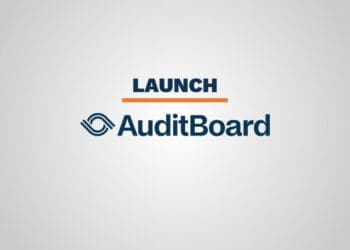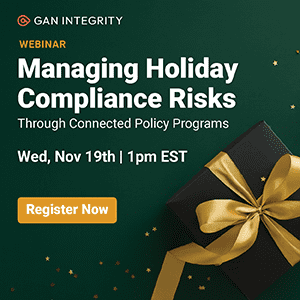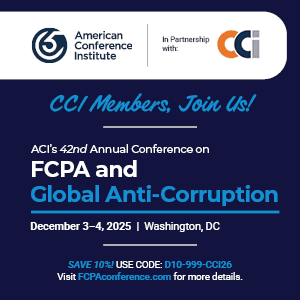Editor’s note: This article was originally published Corporate Compliance Insights on Sept. 2, 2010.
As the string of high profile cases against all segments of the oil and gas industry makes clear, the industry is a prime target of U.S law enforcement agencies enforcing the Foreign Corrupt Practices Act (“FCPA”) and related anti-corruption measures. While law enforcement scrutiny is not confined to the oil and gas industry, FCPA enforcement in the area continues at a brisk pace and shows no sign of abatement in the near future.
Furthermore, the recent passage of the Dodd-Frank Financial Reform bill will only increase government scrutiny of overseas business practices.
A provision of that law requires that “Resource Extraction Issuers” (i.e., companies involved in natural resource extraction who issue securities in the United States and report to the Securities and Exchange Commission (“SEC”)) to include within their annual reports information regarding any payment made to any “foreign government, department, agency, or instrumentality of a foreign government or a company owned by a foreign government.”
While the contours of this requirement remain murky, the SEC is expected to issue rules governing the provision by April 2011. By its language, however, this requirement is wide ranging – encompassing both legitimate payments (e.g., royalties) and illegitimate ones (e.g., bribes and kickbacks) – and provides yet another arrow in the quiver of enforcement authorities investigating the overseas business practices of oil and gas companies.
Given the locations of the world’s hydrocarbon reserves, this ever-increasing enforcement trend and push for greater transparency is not surprising. Seven of the ten largest proved oil reserves[1] lie in countries ranking 120 or below (out of 180) on the most recent Transparency International Corruption Perception Index (“CPI”), with CPI scores of 2.7 or lower (out of 10).[2] Moreover, almost exclusively, these reserves are controlled through government-owned National Oil Companies (“NOCs”), requiring any company seeking to develop those resources to necessarily “do business” with the government. In this environment the opportunities for corrupt payments, which could subject your company or its employees to prosecution under a bevy of anti-corruption laws, are nearly limitless.
This article is not intended to be a comprehensive primer on the FCPA, other anti-corruption laws, or the Dodd-Frank Financial Reform law (there are any number of outstanding articles and treatises on those topics) but instead to provide some guidelines for “best practices” for oil and gas companies doing business with foreign governments. These guidelines will not only assist your company in ensuring compliance with anti-corruption laws and policies, but assist the compliance department in adding real business value to transactions.
1. Understand Who is In Charge
Assuming your company is in the position of negotiating with a NOC for a concession or other job, the first step should be to understand the identity of the ultimate decision making entity. For instance, while the Ministry of Petroleum may control the bidding process for block concessions or other tenders, the local NOC may be the actual contracting or joint venture partner. Moreover, not all NOCs are created equal. Whereas some may be entirely state-owned, an increasing number of NOCs blend public and private investment (e.g., Petrobras is listed on NYSE (PBR) and 32.2% owned by the Brazilian Government with the remainder owned by private shareholders). With an understanding of the complete landscape of who is in charge and who the ultimate decision makers are, your employees will be in a better position to resist and refute corrupt solicitations from lower-level functionaries that can often interfere with initial contracting issues.
2. Beware of “Recommended” Agents and Expensive Meetings
Any requests by government officials (or their intermediaries) that a company hire a specific agent, consultant, or other third party to assist with the bidding and contacting process should be immediately suspect. Too often, such requests are little more than attempts to funnel and launder corrupt payments to an official through a third party. If the use of agents in the bidding and tender process is unavoidable, such agents should be the subject of significant due diligence and agree to abide by the principal’s compliance and ethical standards.
Similarly, entreaties to hold bidding rounds or negotiations in far-flung locales (at company expense with accompanying first-class travel, dining, per diems, etc.) or at expensive restaurants or other entertainment venues should be vigorously resisted. Most effective in this regard is to already have in place corporate policies limiting such travel or entertainment, which allows local employees and contracting officers to save face and goodwill by explaining that fulfilling such requests simply “isn’t allowed by corporate.”
3. Local Content Requirements Require Caution But May Be Legitimate
Requests to hire a specific agent should not be confused with legitimate local content requirements. It has become more common in recent years for oil-rich developing economies to require local private content to be part of any potential bid. The level of required local content may from range from agreeing to use local menial labor (roughnecks, drivers, cleaners, etc.), to mid-level management functions (marine administrators, sample collectors, HR managers, etc.) to more technical positions that require technology transfers or other significant technical training and expertise (geologists, seismic analysts, etc.). If there is any question about the precise level of local content required (or how it is measured), consult with local counsel to better understand these requirements.
While oftentimes legitimate, local content requirements still present ethical and compliance traps for the unwary. For instance, as with agents, local content providers that come “highly recommended” or are presented as “required for all tenders” should raise red flags. While it may be the case that certain providers are in fact required to be used (having already won an earlier bid for the work, for example), if there is any doubt about such requirements local counsel should again be consulted.
In any event, due diligence must be performed on all potential local content partners, including understanding their ownership structure and whether they are owned or controlled by government officials or their family members. Finally, contracts with local content partners should incorporate your company’s ethical code of conduct, require full compliance training of any local employees assigned to the project and, if possible, include certifications from the local content provider that it agrees to abide by your company’s compliance procedures, the FCPA, and other applicable anti-corruption laws.
4. Protect Your Investment (and Stay Compliant) With Smart Contracting
In many developing economies, foreign investors will be required to enter into some form of contractual or joint venture agreement with the NOC or its affiliates to develop blocks, supply oilfield services, or otherwise participate in hydrocarbon development. While the negotiating leverage of each side may not always be equal, that does not mean there is no room for a compliance function during the contracting process.
Fortunately, what is good compliance can also be good business. For instance, regardless of the percentage ownership in a joint venture (“JV”), foreign companies entering into such arrangements should insist on complete audit rights, the right to appoint controller or other senior financial personnel, and that as robust a compliance program as possible be implemented within the JV.[3]
Moreover, in many countries, ownership of JV property (including sub-licensing rights) will be deemed to revert to the NOC or Ministry of Petroleum at the dissolution of the JV. While the foreign partner can and should be permitted under the agreement to withdraw from the JV in the event of unethical or illegal conduct by the other partner (or its agents), this oftentimes leaves foreign companies in the difficult position of having to choose between abandoning significant property and investments or continuing to be part of a corrupt venture. Indeed, for the local NOC, a withdrawal of a foreign partner often results in a significant windfall. However, with savvy contracting, a foreign partner entering into a JV with a NOC can anticipate such possibilities and contract around them. For instance, by including provisions returning property and investment to the foreign partner in the event that partner withdraws from the JV due to corrupt activities, or providing for future revenue sharing of any sub-licensing of a block after such a withdrawal, foreign companies may protect their investment and demonstrate their commitment to ethical business practices.
5. Empower Local Employees to Say “No” to Corruption
Too often, employees at the local level — under pressure to meet sales and production goals and surrounded by an array of competitors who may not hew to the same compliance standards — are willing to take the risk of engaging in corrupt activity to boost the short-term bottom line, often operating under the sense that “everyone is doing it” and that failure to “play the game” will result in lost business. While no amount of compliance training and controls can completely protect against the actions of a truly rogue employee, building a compliant atmosphere must consist of more than power-point presentations and on-line modules.
Starting with the “tone at the top” and migrating to the local level, all employees, regardless of their position within the company, must understand that good business and compliance go hand-in-hand, and that a corrupt bargain is ultimately a worthless one. Companies should take the opportunity to proactively recognize and reward employees who consistently demonstrate a commitment to compliance, as well as empower the lowest level employee to raise compliance concerns to the appropriate function without fear of retaliation. Oftentimes such measures can be easily folded into existing QHSE programs. Similarly, many companies now include a “commitment to compliance” or similar metric in employee evaluations, such that compliance issues now are a factor in the promotion and salaries of employees. Such employment practices help demonstrate a company’s commitment to compliance.
Conclusion
The challenges of acting ethically in developing economies with significant hydrocarbon reserves are immense. No compliance program is going to be completely successful, and no amount of planning and preparation can anticipate and prevent all the compliance and ethical issues that may await foreign companies in these environments.
What can be done is the implementation of a sensible, yet comprehensive, program to prevent, detect, and if necessary remediate, compliance issues that do arise.
Compliance programs, compliant atmospheres and thoughtful contracting and monitoring processes, can allow businesses operating in these difficult environments to be both competitive and compliant.
*****
[1] As calculated by BP’s Statistical Review of World Energy (June 2010). See http://www.bp.com/liveassets/bp_internet/globalbp/globalbp_uk_english/reports_and_publications/
statistical_energy_review_2008/STAGING/local_assets/2010_downloads/statistical_review_of_world_
energy_full_report_2010.pdf
[2] These countries are: Kazakhstan (9th largest proved reserves/120th on CPI (tied)/CPI score of 2.7); Libya (8th/130 (tied)/2.5); Nigeria (10th/130 (tied)/2.5); Russia (7th/146 (tied)/2.2); Venezuela (2d/162 (tied)/1.9); Iran (3d/168 (tied)/1.8); Iraq (4th/176 (tied)/1.5). Seehttp://www.transparency.org/policy_research/surveys_indices/cpi/2009/cpi_2009_table
[3] Issuers (i.e., publicly listed companies) that are majority owners of JVs are effectively strictly liable for the JV’s violations of the accounting provisions of the FCPA. Issuers holding minority interests in a JV are required to use “good faith efforts” to cause the JV to abide by the accounting provisions of the FCPA.












